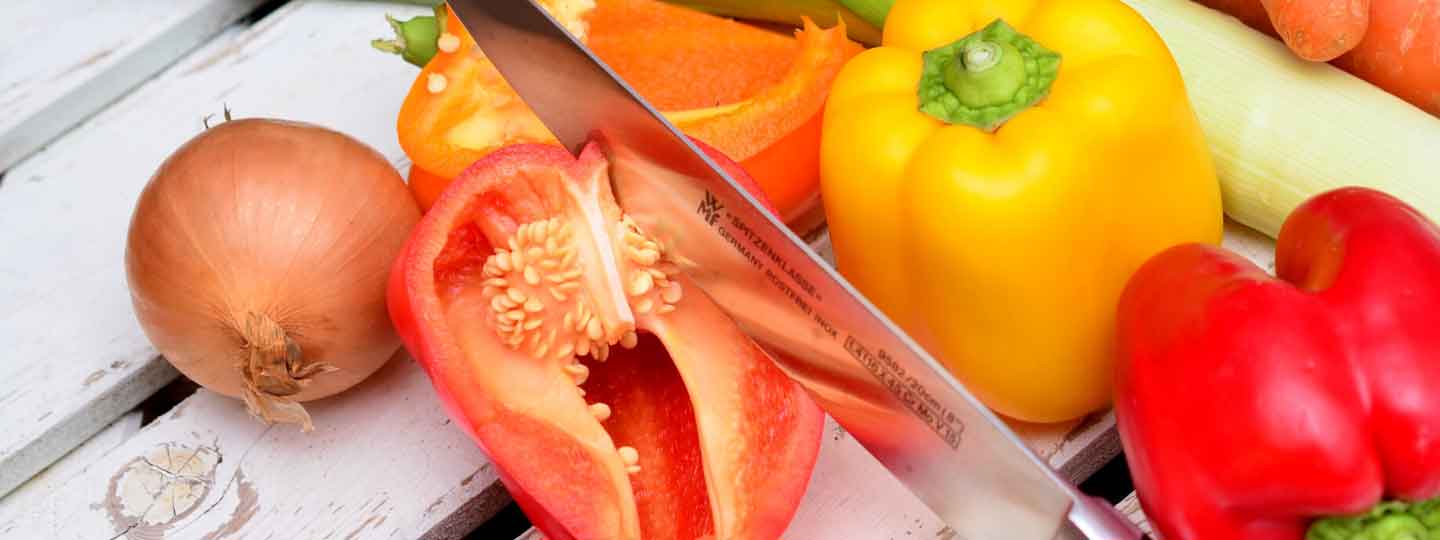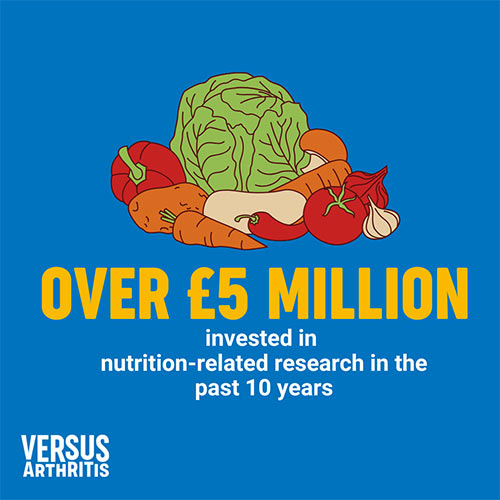The positive impact of a healthy diet on your arthritis – What our research tells us
20 January 2025
As we step into the New Year, you may be wondering what resolution you could make. Eating better is one common resolution idea, but what guidance should you follow?
At Versus Arthritis, we’ve funded over £5 million of nutrition-related research over the past 10 years. This research shows that small changes to our diet can lead to huge benefits for our health and wellbeing. These changes can help us live well with arthritis and even reduce our risk of arthritis and other diseases.
Below are some key discoveries from our researchers.
A higher intake of vegetables and fruits reduces the risk of developing rheumatoid arthritis
The Norfolk Arthritis Register (NOAR), established by us in 1989 and linked to our Epidemiology Centre of Excellence, remains the world’s largest long-term study into inflammatory arthritis.. Following thousands of patients over the course of many years, our researchers have investigated lifestyle and genetic risk factors for developing inflammatory arthritis.
They found that a low intake of vegetables and fruits, or high consumption of red meat, increases your risk of developing rheumatoid arthritis. Our researchers have also shown that eating a diet high in fibre such as vegetables and beans, and rich in healthy unsaturated fats like olive oil, helps keep our immune system healthy as we age. On the other hand, a diet high in processed meats and low in fibre makes our immune system age more quickly.
In 1989 we also invested in another long-term study called the Chingford cohort. This cohort focussed on osteoarthritis by following up 1,000 women in Chingford, near London, over two decades. Together with NOAR, these two cohort studies helped us establish that maintaining a healthy weight, classed as having a body mass index (BMI) between 18.5 and 24.9, is one of the best things we can do to prevent arthritis and to manage its symptoms. Long-term research like this, to find trends in certain groups of people, is known as epidemiology.
Eating a balanced diet with enough protein, while maintaining a healthy weight, helps us to live more healthily for longer
Eating high-quality protein from whole foods such as beans, dairy and fish is very important in maintaining our joints and muscles. We know that as we get older, we need slightly more protein in our diet as our bodies find it harder to absorb it.

Living with obesity and being inactive make it even harder for older adults to build and maintain muscle, so keeping active is essential for healthy joints.
Our researchers found that eating enough of an amino acid called leucine (a building block of protein), is particularly important for musculoskeletal health. Good sources of protein that include leucine are foods like beans, corn, dairy, fish and meat.
Additionally, our researchers have found that certain B vitamins found in dairy products and yeast are essential to reversing the effects of ageing in our muscles.
Simple changes you can make based on our research
- Eating at least five portions of vegetables and fruit a day. This will not only help you maintain a healthy weight – it can reduce the risk of arthritis and help manage its symptoms.
- Include a variety of leucine-rich protein whole foods in your diet, such as beans, corn, dairy, fish and non-processed lean meats.
- Find opportunities to move more every day, such as taking the stairs, using a standing desk and walking more often.
Our ongoing research
We know that a healthy diet is important in preventing and managing arthritis. Next, we want to understand why. Our researchers continue to use our NOAR register to understand more about how diet can affect arthritis.
The DESIGNA study, at the University of East Anglia, is the latest project we fund in this area. This study will investigate the impact that different nutrients in our diet might have on arthritis. We hope to have important findings from this research soon.
Versus Arthritis can’t invest in important research like this without continued support.
Donate today and power more research breakthroughs